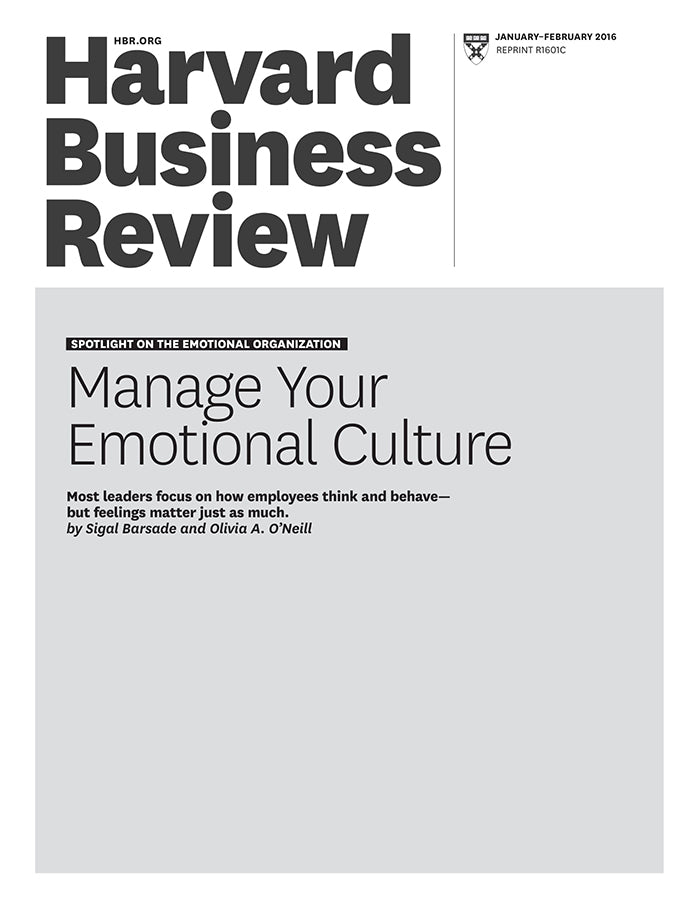Manage Your Emotional Culture
受取状況を読み込めませんでした
Most companies don't realize how central emotions are to building the right culture. They tend to focus on "cognitive culture": the shared intellectual values, norms, artifacts, and assumptions that set the overall tone for how employees think and behave at work. Though that's incredibly important, the authors' research shows that it's only part of the story. The other critical part is the "emotional culture," which governs which feelings people have and express at work. Barsade and O'Neill have found that emotional culture influences employee satisfaction, burnout, teamwork, and even "hard" measures such as financial performance and absenteeism. So when managers ignore or fail to understand it, they're glossing over a vital component of what makes organizations tick, and their companies suffer as a result. By not only allowing emotions into the workplace, but also consciously shaping them, leaders can better motivate their employees. This article describes some of the ways emotional culture manifests at work--for instance, in the form of joy, companionate love, and fear--and the impact it can have in a range of settings and industries. It also suggests ways of creating and maintaining an emotional culture that will help you achieve your company's goals.
【書誌情報】
ページ数:10ページ
サイズ:A4
商品番号:HBSP-R1601C
発行日:2016/1/1
登録日:2016/1/6


